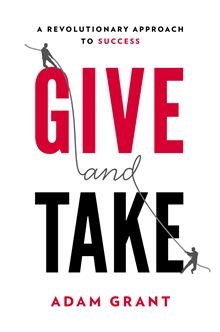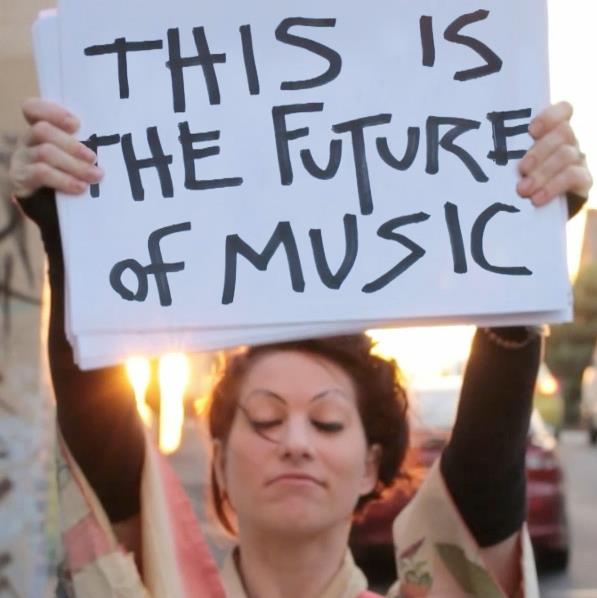
A growing part of the American economy—the part that’s harvesting and utilizing our personal data to drive what we consume—no longer depends on “the basic reciprocities” that once supported our social contract. In other segments of our economy, business is also profiting at worker’s expense and democratic capitalism’s promises to us about shared prosperity are regularly broken.
The mutual benefits of a capitalist economy were supposed to include our thriving as workers, being fairly compensated for our work and able to support our families and communities, while our employers also thrived when we used our paychecks to buy their goods and services. That virtuous circle has been the bedrock of capitalism’s social contract since Adam Smith first described it 300 years ago.
Today, its bonds are weakened, if not altogether broken.
A leading edge of the breakdown is tech platforms harvesting our personal data “for free” while selling it to others who use it to drive our decisions about what we consume. In what’s been called “surveillance capitalism,” we’re no longer valued at the front end of the exchange for what we provide (in this instance, our information). Instead our only value is at the back-end, determined by how much the companies that utilize our data can manipulate us into buying whatever they’re selling.
In this growing segment of our economy, largely exploitative exchanges have already replaced mutually beneficial ones. In addition to not paying us for our information, this economic model creates very few jobs in a departure from the consumer-oriented companies of the past. Its failure to value what we’re providing as workers and consumers relative to the enormous profits its trophy companies are reaping undermines both the health of the economy and the democratic institutions that depend on it.
In our economy’s more traditional jobs, we are also losing out today when it comes to the fair exchange of our work for its supposed benefits. A broader stagnation in the American economy results when the benefits that companies gain from pro-business policies fail to “trickle down” and benefit the vast majority of workers who lack the financial security to also be shareholders in these same companies. The result is a yawning wealth gap between the 1% (or, perhaps more accurately, the top 10%) and every other American.
Communities break down both economically and politically when we’re not compensated adequately for the work and information that we provide. What were supposed to be “a series of mutual benefit equations” between workers and employers, consumers and companies that sell us things, have become increasingly unbalanced.
The first discussion today looks at this breakdown in the social contract. The second part argues for a shift in priorities that can confront the perils of surveillance capitalism along with other distortions—like income inequality and stagnant growth—that harm all but a small percentage of those who participate in America’s economy today.
Instead of more failed attempts to increase economic opportunity through pro-business polices or to limit the harms of this approach with band aids for those it leaves behind, a far better alternative is promoting work for all who are willing to do it, while making the dignity of work (and the thriving families and communities that good work produces) our priorities. Rebalancing the economic equation for workers and consumers will enable the economy to benefit nearly everyone again while mending vital parts of America’s promise.
I took the pictures here in Germantown, a nearby “town” in Philadelphia where the Revolutionary War battle took place. Three centuries ago, America’s democratic capitalism began in places like Germantown. In the fabric of its old and repurposed buildings, it’s not difficult to find a metaphor when you’re looking for one.
In the side of one old factory, there is a bricked-in wall where there used to be a workroom. In the future of our work, I’d argue that bricked-over workrooms like this, where we used to benefit from our contributions as workers and consumers, need to be opened up and revitalized. We need to call out our increasingly feudal system for what it is, and reorient our priorities to restore basic economic relationships that are foundation stones for our way of life.
The Fundamental Breakdown
In a post from January, I discussed the arguments that Oren Cass makes in his new book The Once and Future Worker about how the mutually beneficial relationships between workers, consumers and businesses have broken down since the 1970s and our repeated failures to address the imbalance. As I said at the time:
[Cass] is concerned about the vast majority of urban, suburban and rural workers who are not sharing in America’s prosperity because of policy choices that have been made over the past 50 years by “the Left” (for more government spending on safety nets) and “the Right” (for its insistence on driving [business profits] over every other priority). Putting expensive band-aids on the victims of pro-growth government policies—when we could simply be making better choices—is hardly a sustainable way forward in Cass’s view.
Cass argues that propping up business to create a bigger pie for all has been a failure because those bigger slices are being eaten almost exclusively by business owners and their investors as opposed to their workers, their communities, or the economy at large. To counter this result, Cass wants policy makers to adopt entirely different priorities than the Right and Left have been embracing, namely, active, sustained promotion of “a labor market in which workers can support strong families and communities [as] the central determinant of long term prosperity.” Several of his proposals about how to do so, along with his views about the dignity of work and its importance to democracy, are set out in that earlier post.
Cass’s conclusion (and mine) is that America needs to change its economic priorities before the costs of failure get any worse.
In another new book, The Age of Surveillance Capitalism, Shoshana Zuboff focuses on a leading edge of the current problem: the stark imbalance in “behavioral futures markets” where data about what we “are likely to want next” has tremendous value to companies selling us products and services but which no one has been paying us to provide. For Zuboff, these tech platforms, along with the marketers and sellers who buy our behavioral information, have created “a new economic order that claims human experience as free raw material” while implementing “a parasitic economic logic in which the production of goods and services is subordinated to a new global architecture of behavioral modification.” If the industry players can seduce you into giving enough information about your motivations and desires to your smart phones, smart speakers, social networks and search engines, they can persuade you to buy (or do) almost anything.
Zuboff discusses how economic theorists from Adam Smith to Friedrich Hayek legitimized capitalism as a system where workers needed to be paid well enough to provide for their families, be productive members of their communities, and have enough spending money left over to buy the products and services that companies like their employers were providing. In an essay that laid out her argument before Surveillance Capitalism was published, Zuboff cites economic historian Karl Polanyi for his views about how American companies after World War II were expected to offer a kind of communal reciprocity that involved hiring the available workers, hiking wages when possible, and sharing their prosperity rather than hoarding it.
Polanyi knew that capitalism was never self-regulating, could be profoundly destructive, and that its foreseeable human tolls needed to be minimized. To do so, “measures and policies” also had to be integrated “into powerful institutions [that were] designed to check the action of the market relative to labor, land and money.” Zuboff cites Polanyi’s post-War study of General Motors not only for for the ways that fair labor practices, unionization and collective bargaining preserved “the organic reciprocities” between its workers and owners but also for how much the public appreciated these shared benefits at the time.
In the 1950s, for example, 80 percent of [American] adults said that ‘big business’ was a good thing for the country, 66 percent believed that business required little or no change, and 60 percent agreed, ‘the profits of large companies help make things better for everyone who buys their products or services.’
It was a balance that persisted for almost 40 years until what Zuboff calls “the ascendancy of neoliberalism” promoted an extreme form of capitalism where owner profits and share price were paramount and a responsible commitment to workers and communities no longer held capitalism’s worst tendencies in check. Around 1980, Oren Cass notes a related shift. Instead of creating worker satisfaction through “the dignity of work,” there was an economic policy shift from promoting worker satisfaction through the quality of their jobs to keeping them happy as consumers by giving them more stuff to buy with their paychecks.
Zuboff argues that the surveillance capitalists stepped in once these established reciprocities were breached, with profound effects for individual Americans as workers and consumers, for communities whose vitality depends on them, and for our democratic way of life itself.
Instead of paying for the parts of us that they’re profiting from, the surveillance capitalists pay us nothing for our behavioral data. Given the enormous size and profitability of companies like Facebook, Google and Amazon, they also “give back” far fewer jobs to the employment market than a GM once did. Moreover, these companies feel that they owe us nothing in exchange for manipulating us into buying whatever they’re selling—what Zuboff calls a kind of “radical indifference.” Without so much as an afterthought, they take without giving much back to us individually, to the job market, or to the community at large. Capitalism’s ability to lift all boats was supposed to be a driving force for democracy and the genius of the American Dream.
The absence of organic reciprocities with people as sources of either consumers or employees is a matter of exceptional importance in light of the historical relationship between market capitalism and democracy. In fact, the origins of democracy in both Britain and America have been traced to these very reciprocities. [the citations I’ve omitted here are provided in her essay]
In The Age of Surveillance Capitalism, Zuboff describes the problem but doesn’t propose solutions. Cass, on the other hand, argues that capitalism remains the best hope for workers to reclaim their share of economic prosperity, but that we’ll have to change our public policies in order to restore the necessary reciprocities. As for surveillance capitalism, tech futurist Jaron Lanier made an early argument for countering tech company indifference and reclaiming the benefit of our personal data in his 2013 book Who Owns the Future? His proposals are even more feasible today.

Restoring the Balance
Cass’s Once and Future Worker is an important book because he backs up his ideological preferences with hard data. His solutions begin with the need for new government policies that aim to support thriving workers, families and communities by reinforcing the democratic give-and-take that is barely holding America together today. Along the way, Cass never loses sight of the real human impacts—for better and for worse—of economic forces and the policies that attempt to manage them.
For example, in his chapter “A Future for Work,” Cass argues that the workforce disruptions that will result from automation are a natural and positive effect of every innovation from the Industrial Revolution to the present. Learning how to do more with less is essential for economic growth. At the same time however, he argues strenuously that gains in economic productivity from new inventions and technologies (fewer workers producing the same amount) need to be matched by policy-driven gains in overall economic output (which will give displaced workers the ability to find new jobs as more wealth is created, living standards improve and consumer demand grows).
This is precisely what happened from 1947 to 1972, widely seen as the golden age of American manufacturing and the nation’s middle class. Economy-wide productivity increased by 99 percent; only fifty workers were needed by the end of the Vietnam War to do the work that one hundred could complete at the end of World War II. The result was not mass unemployment. Instead, America produced more stuff. The same share of the population was working in 1972 as in 1947, and men’s median income was 86 percent higher…[W]ith fewer workers required to produce the output of 1947, many could serve markets in 1972 that hadn’t existed a generation earlier or that had been much smaller.
Cass admits that these disruptions are hard for individual workers to weather but that expanding economic output always provides new jobs for displaced workers eventually. I’ve discussed the theory that at least some workers can prepare for disruptions like automation by developing skills “at the scalable edges” of their industries before their jobs disappear. But Cass also cites the introduction of ATM machines and fears about bank closures for an easier transition given the health of the economy at the time. In the years when ATM machines debuted, economic output (or an expanding economy) was matching productivity gains (and business profits). Since these ATMs lowered the banks’ cost of doing business, they repeatedly responded by opening more branches and creating new jobs.
Unfortunately, government statistics indicate that current productivity gains are not being matched by gains in overall economic output. It is a time when companies like Google, Facebook and Amazon are using their innovations to maximize corporate profits but provide relatively few jobs while exploiting free user data–giving back little (beyond convenience) that can enable workers, families and communities to thrive as well. So if you don’t feel like you’re “getting ahead” today, it’s not your imagination; the output economy that creates new economic opportunities and new jobs isn’t keeping up, and it hasn’t been doing so for years. Writes Cass:
From 1950 to 2000, while productivity in the manufacturing sector rose by 3.1 percent annually, value-added output grew by 3.6 percent—and employment increased, from 14 million to 17 million. During 2000-2016, productivity rose by a similar 3.3 percent annually. But output growth was only 1.1 percent—and employment fell, from 17 million to 12 million. Even with all of the technological advancement of the twenty-first century, had manufacturers continued to grow their businesses at the same rate as in the prior century, they would have needed more workers—a total of 18 million, by 2016 [if output had also been growing].
While he does not describe the problem in terms of “reciprocities” between workers, businesses and consumers like Zuboff, Cass would agree that the imbalances between them are at the heart of the problem and need to be corrected. Once again, several of the policy solutions he proposes are reviewed in my January post. All reject the failed economic policies of the Left and the Right in favor of new approaches that will help workers, families and communities to thrive even if we have to settle for making somewhat less money as an economy overall.
Long before Shoshana Zuboff was railing about “surveillance capitalism,” Jaron Lanier was arguing that our behavioral information has tremendous value to the tech platforms, marketers and sellers or what he calls the “Siren Servers” that are harvesting it, and that we should be putting a price tag on our personal data before they take any more of it for free.
Like both Zuboff and Cass, Lanier believes in an economy that is sustained by a thriving middle class with plenty of hard, fulfilling work. His quandary is finding a way that more livelihoods can be sustained “in a world in which information is king,” as his Guardian book reviewer put it.
To that end, Lanier fears that in the early days of the internet we spent too much time worrying about open access and too little, if any time worrying about the digital economy’s likely impacts on job security and the monetizing of user information. Lanier emphasizes the highly personal nature of this exploitation by arguing that our behavioral data “is people in disguise” and morally intertwined with the humans who supplied it.
Lanier’s corrective is to implement a system where we would each be given “nanopayments” for the use of our biometric property. In 2013, he envisioned more sophisticated archives to record where our data originates as well as what it should be worth. He takes over half of his book to describe this mechanism. For our purposes, what he envisioned five years ago can be reduced (although far too easily) to a series of blockchain-based payments for our provision of useful personal data, similar to the system discussed here in a post from last August. Lanier’s nanopayments to individuals whenever a company profits from their personal information would be daunting to implement but it would also go a long way towards restoring Zuboff’s “organic reciprocities” and bringing Cass’s broader economic growth into the business of surveillance capitalism.
+ + +
The mutual benefits that we once enjoyed as workers, consumers and business owners in exchange for what we were providing is no longer a reality. The reasons for that loss and the blame for those responsible are just the front-end of our thinking about what we’re prepared to do about it.
In the election cycles ahead of us, it is hard to believe that our nation will have the kind of reasoned debate that we need to be having about the future of our work and its impact on our families, our local communities and our way of life itself. But maybe, hopefully, a conversation along the lines I am arguing for above will begin alongside the shouting matches we are already having about the need to abandon democratic capitalism altogether.
Cass, Zuboff and Lanier all begin with the proposition—and it’s where I start too—that our future needs to be built by human workers and that the work we’ll be doing needs to enable us, our loved ones, our neighbors, our shared economy, and not merely a protected few, to flourish.
We have managed to do this before.
Many of us have experienced its mutual benefit in our lifetimes, and we can experience it again.
But first, we’ll need to restore the social contract around our work.
This post was adapted from my April 21, 2019 newsletter. When you subscribe on this page, a new newsletter/post will be delivered to your inbox every Sunday morning.







